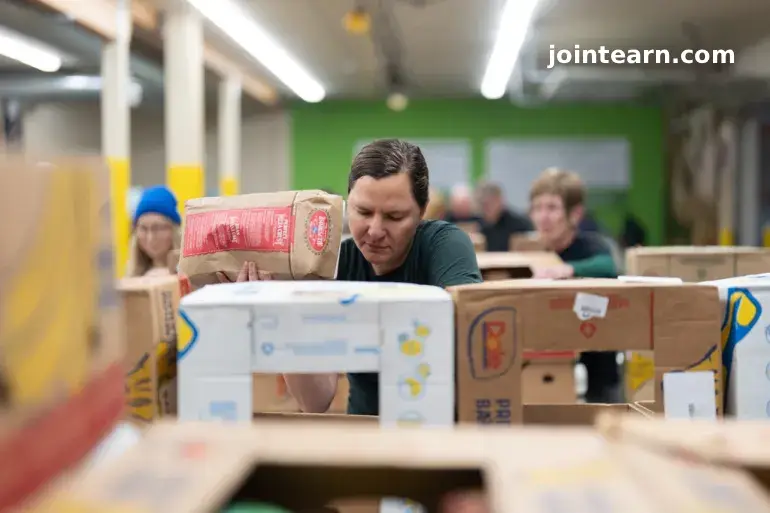
NEW YORK, USA — Millions of Americans who depend on federal food assistance are bracing for an unprecedented lapse in benefits this weekend, as the ongoing U.S. government shutdown threatens to halt the Supplemental Nutrition Assistance Program (SNAP) for the first time in history.
With federal funding frozen, state and local governments are declaring emergencies and scrambling to provide temporary relief. New York Governor Kathy Hochul became the latest to act on Thursday, issuing a state of emergency to help the more than three million residents expected to lose access to food aid on November 1.
“I’m declaring a State of Emergency to use every tool we have to help the three million New Yorkers losing food assistance because of the GOP shutdown,” Hochul announced on social media.
She joins governors in Virginia, Rhode Island, and New Mexico, who have made similar declarations in recent days to prevent widespread food insecurity.
SNAP Benefits Suspended for the First Time in History
While government shutdowns have frequently disrupted federal services, the Trump administration’s decision to suspend food benefits entirely marks a historic first.
The U.S. Department of Agriculture (USDA) confirmed last week that it would halt SNAP funding starting November 1, citing the inability to access contingency reserves during the shutdown.
“Bottom line, the well has run dry,” the USDA wrote in a statement on its website. “At this time, there will be no benefits issued November 01. We are approaching an inflection point for Senate Democrats.”
The USDA’s move means that more than 42 million Americans — one in eight people — could lose vital nutrition assistance that helps families purchase groceries, feed children, and avoid hunger.
Political Standoff Deepens
The current budget impasse stems from a political standoff between Republicans and Democrats over healthcare funding and government spending. Congress failed to pass a budget before the September 30 deadline, triggering a shutdown that has furloughed thousands of workers and frozen major social programs.
Democrats have accused the White House of politicizing food aid to pressure lawmakers into backing Trump’s legislative priorities.
“Suspending SNAP during a shutdown weaponizes hunger against vulnerable Americans,” said a Democratic Senate aide. “This has never happened in U.S. history.”
States and Charities Mobilize Emergency Response
Governors, mayors, and nonprofits are now racing to plug the gap as the federal lifeline dries up. Local officials in several states have tapped emergency reserves to fund short-term relief for low-income families.
Food banks and charities across the country are also preparing for an explosion in demand.
“We’re already seeing double the normal volume at our food banks,” said Jenny Kane, a volunteer at the Oregon Food Bank in Portland. “If benefits stop, people will have nowhere else to turn.”
Faith-based organizations have joined the call for immediate federal action. The U.S. Conference of Catholic Bishops warned that the suspension of food aid could be “catastrophic.”
“This would be devastating for families and individuals who rely on SNAP to put food on the table,” the bishops said. “The burden of this shutdown falls most heavily on the poor and vulnerable.”
Legal Battle Over Food Aid
Twenty-five Democrat-led states have filed lawsuits demanding that the federal government continue funding SNAP during the shutdown. A federal court in Massachusetts heard arguments on Thursday.
Plaintiffs argued that the sudden cutoff violates federal obligations to ensure food access for children and the poor, noting that retailers who depend on SNAP purchases would also suffer economic harm.
U.S. District Judge Indira Talwani said she planned to issue a ruling soon but hinted that the government might seek an “equitable reduction of benefits” rather than a total suspension.
Impact on Families and the Economy
SNAP costs roughly $8 billion per month to administer, making it one of the largest anti-poverty programs in the United States. For many families, it is the difference between food security and hunger.
Analysts warn that the lapse in benefits could ripple through the broader economy, hurting grocery chains, small food retailers, and local markets that depend on SNAP transactions.
“A disruption of this scale would impact food access, retail sales, and local economies simultaneously,” said Maria Hernandez, an economist at the Center for Food Policy Studies.
The Road Ahead
The White House has maintained that it cannot legally allocate additional SNAP funds without congressional approval, even as public pressure mounts.
Meanwhile, civil society groups, religious institutions, and state governments continue to mobilize food drives and emergency meal programs to prevent hunger crises in vulnerable communities.
“Every day of inaction means millions of Americans are left wondering where their next meal will come from,” said David Kim, director of the nonprofit Feeding the Future. “The clock is ticking.”


Leave a Reply